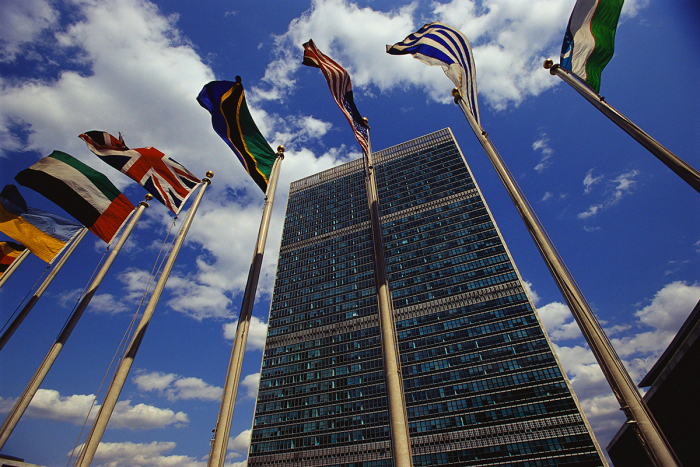
Editor’s note: This article contains descriptions of sexually explicit material that some readers might find disturbing.
The United Nations Children’s Fund is reportedly sponsoring materials that teach minors worldwide, some as young as 10, to explore their preferred sexual practices through things like foreplay and to view masturbation as a way to understand their bodies and desires.
The Center for Family and Human Rights, a nonpartisan think-tank, analyzed dozens of the U.N. agency’s programs and materials in a July report titled, “UNICEF: Attack on the World’s Children.”
Max Primorac, a senior research fellow at the Margaret Thatcher Center for Freedom at The Heritage Foundation, a conservative think-tank, told The Christian Post that his research has also uncovered evidence suggesting UNICEF imposes sexual ideologies on children. The researcher also pointed to numerous examples of UNICEF openly promoting LGBT messaging in its programming.
“C-Fam conducts serious research, and their findings confirm my own discovery of UNICEF imposing radical sex ideologies on some of the most vulnerable populations, especially children in Africa. That merits a total cut off in US aid, including through our global HIV/AIDS program PEPFAR.”
In a Friday statement, C-Fam noted that UNICEF promotes the types of materials cited in its report without explicit approval from the U.N. member states. The think-tank also asserted that most of the U.N. General Assembly disapproves of the material promoted by UNICEF.
UNICEF did not respond to The Christian Post’s request for comment.
While UNICEF claims to promote “age-appropriate” comprehensive sexuality education materials, C-Fam’s analysis highlighted a “Your Guide to Adulthood Without Secrets” brochure that the agency published in January 2024. The brochure is intended for Ukrainian children of various age groups, including teenagers, preteens and young children.
The UNICEF brochure aimed at Ukrainian children ages 15 to 18 tells teenagers that “sex happens” before going into detail about several sexual acts, including anal sex. UNICEF’s CSE material also tells teenagers that masturbation is “part of healthy sexual behavior.”
Regarding Ukrainian children ages 10 to 14, the brochure claims that “All types of sexual orientation are natural,” and that phrases such as “traditional and non-traditional orientation are incorrect.” The material also encourages the young teens and preteens to think about their preferred sexual practices and to discuss these preferences with a partner while they’re still unmarried.
“Foreplay and caressing touch help you relax, feel comfortable, and increase sexual arousal,” the UNICEF brochure states. “[…] In order to understand what caressing you and your partner like, you need to talk about it.”
Regarding the topic of masturbation, the material claims that the act is “surrounded by myths,” claiming that “it is one of the ways to relieve stress, quench sexual arousal, explore one’s own body, sexuality and desires.”
C-Fam’s report also highlighted Laaha, an online platform supported by UNICEF that girls of any age can reportedly access without parental oversight. The think-tank’s report highlighted screenshots and quotes from Laaha instructing girls to touch themselves and to think of foreplay as a “warm-up to the main event.”
UNICEF’s 2016 review of CSE in Thailand, cited in C-Fam’s report, also noted that “Many students hold attitudes that reject gender equality and sexual rights.”
“Although diverse topics are covered in the CSE curriculum, many institutions teach about sexuality from a point of view that emphasizes the negative consequences of sex and does not cover positive aspects or promote students’ analytic and critical-thinking skills,” the agency’s review stated.
“Topics related to the prevention of teenage pregnancy, sexually transmitted infections and HIV, as well as sexual anatomy and development are emphasized most, while topics related to gender, sexual rights and citizenship; sexual and gender diversity; gender inequality; safe abortion; safe sex for same-sex couples; and bullying are less often taught,” the review continued.
The scrutiny over UNICEF-sponsored CSE materials follows another controversy over a paper that critics said downplayed the harm of pornography on children.
In April 2021, UNICEF published a report titled “Digital Age Assurance Tools and Children’s Rights Online Across the Globe,” with the study later disappearing from the agency’s website a month later. A UNICEF spokesperson told Snopes at the time that the paper had been removed “because it was being misrepresented in a way that didn’t reflect UNICEF’s position.”
While UNICEF’s report acknowledged that “there are several different kinds of risks and harms that have been linked to children’s exposure to pornography,” critics took issue with the report’s claim that “the evidence is inconsistent, and there is currently no universal agreement on the nature and extent of the harm caused to children by viewing content classified as pornography.”
Nearly 500 child safety experts from 26 different nations signed a letter in response to UNICEF’s report that denounced what they called the “harmful inaccuracies regarding the impact of pornography to children.”
Samantha Kamman is a reporter for The Christian Post. She can be reached at: samantha.kamman@christianpost.com. Follow her on Twitter: @Samantha_Kamman













